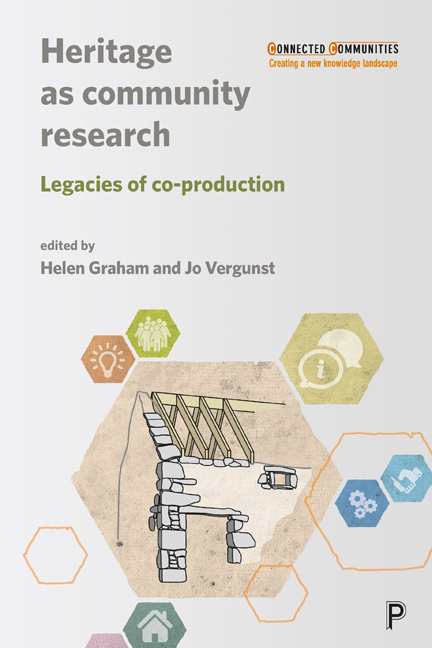five - Legacy and lavender: community heritage and the arts
Published online by Cambridge University Press: 27 April 2022
Summary
Introduction
This chapter explores how new perspectives on organisational practices are revealed when participants in an arts practice research project decide to focus on a local heritage subject. The Lavender Project, as this arts project became known, is a case study in an Arts and Humanities Research Council (AHRC) Connected Communities collaborative doctoral award (CDA) between Robert Gordon University (RGU) and community partner Woodend Barn (The Barn), a rural arts centre in the North East of Scotland. The CDA came about because of a long-standing relationship between Fiona Hope and Mark Hope, co‑founders and trustees of the Barn, and Anne Douglas, co‑founder of On the Edge Research, a network of people and organisations concerned with the relationship of contemporary art to rural cultures (see: https://ontheedgeresearch.org/). When the AHRC's Connected Communities programme was initiated, the idea of a CDA hosted by the Barn seemed a logical extension of the work of both the Barn and On the Edge in exploring the role and practice of the artist in society. The CDA invited the successful applicant, visual artist Helen Smith, to consider how, through art, the Barn might address their organisational challenges and future sustainability.
Reflecting the dialogical and plural approaches to knowing discussed in the Introduction to this volume, in this chapter, participants with different roles across their organisation reflect critically together upon difficult and complex topics, including the future direction of their arts centre. The dialogues are characterised by humour and metaphor, referencing the heritage subject and their experience of this research process. These reflections shed light on how collaborative participatory arts research, when combined with a local heritage subject identified by the participants, can open new spaces for criticality between communities, generating durable, negotiated change.
Talking about legacy
Helen Smith and Mark Hope begin with a conversation about legacy, a significant concept because it prompted reflection on the value of collaborative research for all participants. This kind of research is not simply about finding answers to a problem, but about developing a process for inquiry and dialogue, and so its legacies can be hard – but important – to identify.
- Type
- Chapter
- Information
- Heritage as Community ResearchLegacies of Co-production, pp. 107 - 126Publisher: Bristol University PressPrint publication year: 2019

